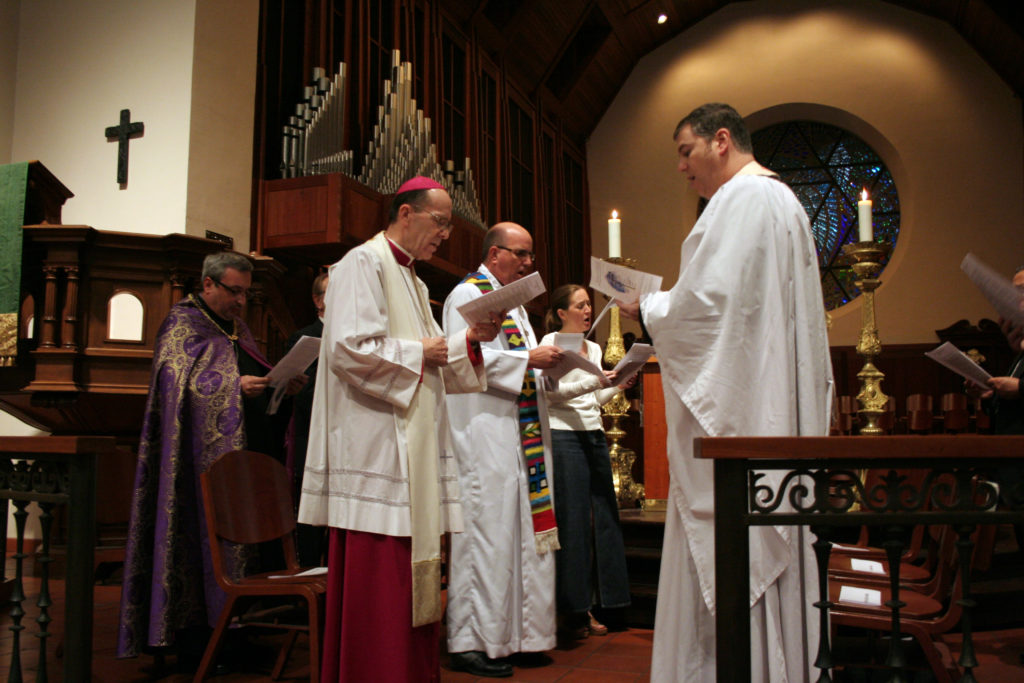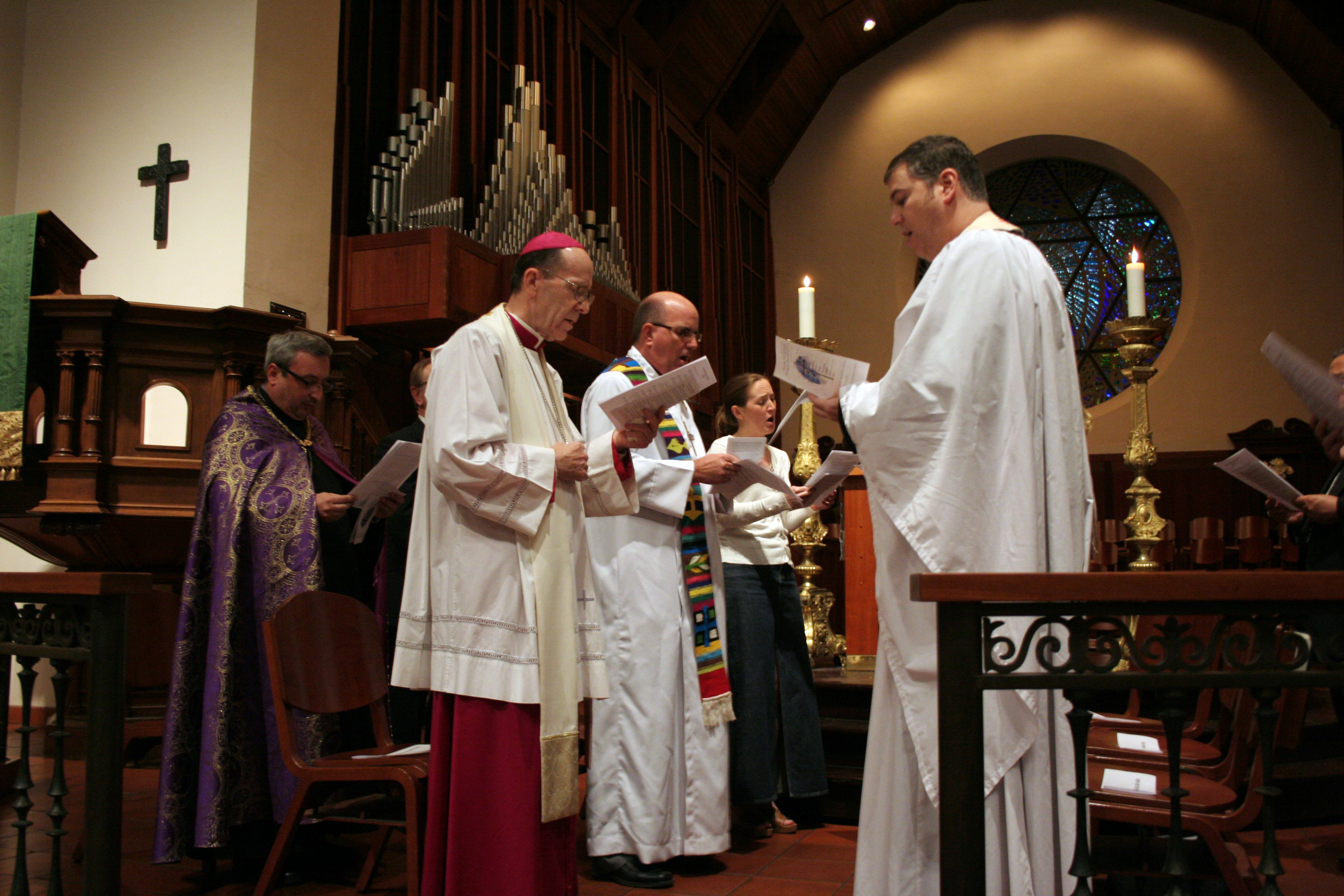
during an ecumenical prayer service sponsored by Arizona Faith Network. (Courtesy photo/Episcopal Diocese)
Christian faith communities gathered for an evening of prayer Jan. 22 in celebration of their unity as followers of Jesus.
The ecumenical prayer service at Trinity Episcopal Cathedral was sponsored by Arizona Faith Network in honor of the Week of Prayer for Christian Unity.
Arizona Faith Network
Formerly known as the Arizona Ecumenical Council, the Arizona Faith Network strives to bring together people of faith, under the inspiration of God, as a bridge to understanding and action.
Info: (602) 468-3818[/quote_box_right]
“Instead of focusing only on the causes of division that exist among Christians, it is important to celebrate the bond of unity that exists among us through our profession of faith and baptism,” said Fr. Michael Diskin, assistant chancellor of the diocese and president of Arizona Faith Network. “The Catholic Church teaches that there is a real, if imperfect, communion that exists among all baptized Christians.”
Presenters were representatives of different denominations including Bishop Thomas J. Olmsted and Auxiliary Bishop Eduardo A. Nevares; Fr. Andrew Barakos, Assumption Greek Orthodox Church; Rev. Dr. John Dorhauer, Conference Minister, United Church of Christ; Rev. Troy Mendez, Dean of Trinity Episcopal Cathedral; Rev. Erin Tamayo, executive director of Arizona Faith Network, Pastor Sarah Stadler-Ammon, Grace Lutheran Church; Fr. Zacharia Sarbekyan, St. Apkar Armenian Church and Gerrit Steenblik, The Church of Jesus Christ of Latter-Day Saints.
Bishop Stephen Talmage of the Grand Canyon Synod of the Evangelical Lutheran Church in America was the guest speaker.
He addressed the theme for the 2015 observance: Jesus said, “Give me a drink,” (John 4:7) which was chosen and prepared by representatives of the Pontifical Council for Promoting Christian Unity and representatives of the World Council of Churches.
“Jesus challenges His disciples at the well and us today, to learn that by simple engagement of another might bring transformation to a whole community, as we read of the impact of the Samaritan woman’s testimony to her village,” Bishop Talmage said.
Noting people of all races, cultures and nationalities make up the human family who Jesus invites to be united in His love, the bishop underscored how diversity is unique and enriches life.
“I have come to appreciate distinguishing between the essential and non-essential,” Bishop Talmage said, referring to participating in an ecumenical gathering on reflective listening to learn how individuals or groups from different positions or perspectives can find common ground.
“Over all of this is a deep appreciation of the other as a fellow human being, worthy of respect and kindness.”
Founded in 1908, the international week of prayer observance is celebrated each year in cities and towns across the country and around the world.
The octave of prayer typically falls between the feast of St. Peter’s Chair on Jan. 18 and the feast of the Conversion of St. Paul on Jan. 25. The international texts are developed, adapted and published for use in America by the Graymoor Ecumenical and Interreligious Institute.
“This is important in light of what’s going on in the world,” said Rev. Tamayo. “We are different, but we can stand together in unity and accept each other’s differences and drawing from that we learn a lot more from each other. I believe God calls us in different ways and it would be boring if we were all the same — we honor that in each other.”
The experience of prayer and gathering provides an opportunity to examine the effectiveness of the ecumenical movement in seeking to end the divisions among Christians, but emphasizes a common mission — spiritual solidarity.
Bishop Olmsted said the Second Vatican Council taught that the soul of the whole ecumenical movement is “spiritual ecumensim.”
He explained the term Vatican II used meant private and public prayer for reconciliation and unity, and daily efforts to love separated brothers and sisters.
“In light of this, I consider gatherings for prayer with our separated brothers and sisters to be of great importance,” Bishop Olmsted said. “When we pray together, we open our hearts and minds for the Holy Spirit to move us to the conversion needed to advance along the road of authentic unity in Christ.”







